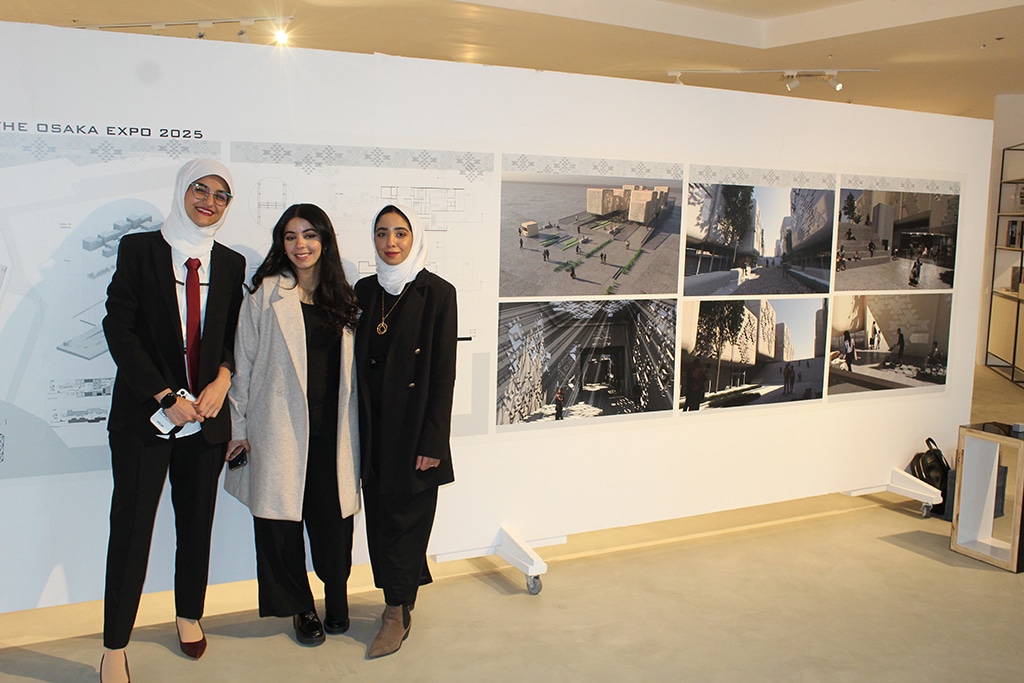By Abdellatif Sharaa
KUWAIT: Kuwait University College of Architecture organized an exhibition for its third-year students, who were asked to prepare a design for Kuwait's pavilion for the Osaka Expo 2025 in Japan. The students were divided into groups, and each group had a design, from which the winner will be chosen.
The students were dedicated and very excited to present their work in the best way possible. "Through a wonderful experiential journey that promises to be interactive and enlightening, we will show that Kuwait is a place that is welcoming and open for everyone from different countries, cultures and races to live and work there and leave their fingerprints and be part of the social fabric. The different zones of the pavilion will each have its own set of interactivities to enjoy and explore," one of the groups wrote about their concept.
"The project reflects Kuwait's vision towards the future, what we are looking for and what type of development we are seeking, and the general thinking of the society and its relation with other societies around the world. As for Kuwait University, we wanted to give the students an opportunity to design the project, as the core pillar of it is to empower and allow them to work in one of the fields," Dr Emad Al-Qattan said.
He said students were divided into seven groups, and each had a certain idea and vision of how the pavilion will be presented in Japan, while reflecting Kuwait's vision and development plans. He said what is encouraging is that each design is different from the other and shows the students' ability to interpret their ideas in their designs.
Badriya Abdelsalam, a third-year student, said "although the study and work it entails is hard and demanding, the end product proves to us that it is worth it". She said the project was teamwork, "as Fatima Al-Arbash and Loulwa Al-Failakawi and I worked together on the Kuwait pavilion for Osaka Expo 2025, and today we presented it to the judges".
Architecture Professor Mohammed Khesrouh said architecture in Kuwait is still in a cradle and anything like this remains experimental, as experimentation is the gateway for it to open and expand. "Students must be given freedom to experiment and test, and this is the duty of professors and teachers to give them this freedom, because this will make them explore and study more," he argued.
Fareed Abdelsalam, a parent, said architecture in Kuwait is still premature in general, not only as a subject at the university. Students do not know what exactly is this specialty and what is the future for them. He added the government and university, and even the private sector, are not helping a lot in this matter. He gave an example that the university demands higher GPA from high school than for engineering or medical specialties, yet once they graduate, they do not know where to go. He hoped the government and private sector pay attention to this issue and encourage the students once they graduate.












